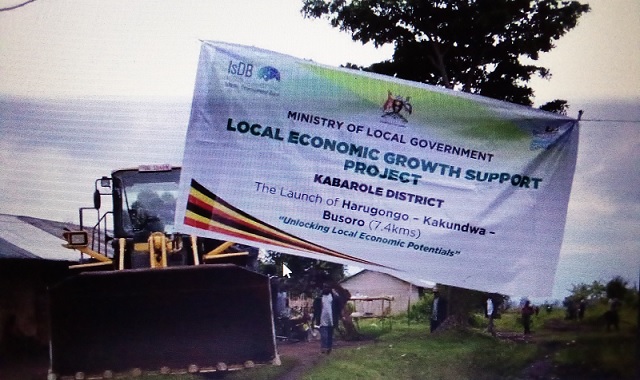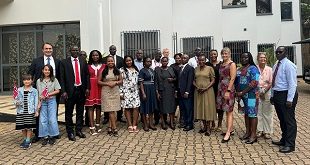
More than 6,000 small-holder farmers have benefitted from the LEGS project
Kampala, Uganda | THE INDEPENDENT | Uganda government says the Local Economic Growth Support (LEGS) project is on track to improve the lives of more than one million people in the rural areas.
The 5-year project launched in 2019 worth US$50million aims to improve living conditions in 17 districts through improving livestock production by 25%, increasing access to drinking water by 75%, financing the acquisition of 729 pieces of farm equipment, and financial support for farmer groups across a variety of agricultural produce, among other initiatives.
So far, more than 6,000 small-holder farmers have benefitted from the LEGS project, having received 4.3 million seedlings for high-value cash crops (coffee, tea, vanilla) for the export market, 375 tons of organic and chemical fertilizers, 20 kilograms of fruits & vegetable seeds for income and nutritional security, and 1,821 tools and equipment.
The local government minister, Raphael Magezi, said the government is committed to making remarkable progress in its quest to stimulate local economic growth and development.
“Our top agenda involves taking the nation from low to middle-income status by collaborating with like-minded players in the private sector to stimulate transformative growth across Uganda’s rural communities. Sustainable development is strongest when we harness collective power,” he said.
This comes as Uganda’s economic growth has averaged 6.9% in the last five years compared with an average of 4% for Sub-Saharan Africa.
Dr. Umar Issahaq Iddrisu, Country Manager for the Islamic Development Bank Uganda (IsDB) said restoring human dignity is a cornerstone of the vision of IsDB and part of its commitment to supporting member countries to achieve their development plans.
“The LEGS project has been instrumental in providing food security and increasing income for smallholder farmers in rural communities,” he said.
“The project has been providing the necessary inputs, skills, access to finance and enabling infrastructure for the rural communities to prosper, hence aligning to the aspirations of Uganda and the Bank. The relationship is more enduring when built on mutual ambitions, respect and equality where all parties are empowered.”
The LEGS project seeking to address critical issues among the livelihoods of rural communities in 17 districts: Aleptong, Katakwi, Kumi, Kibuku, Gomba, Nakaseke, Kyenjojo, Bunyagambo, Kabarole, Ntoroko, Buyende, Buikwe, Tororo, Adjumani, Nwoya, Rukungiri and Luwero.
The project is also looking at contributing to post-Covid recovery and resilience in response to disrupted supply chains and market linkages, which have affected production and livelihoods among Uganda’s rural communities.
The project is prioritising investments, improving rural infrastructure, and water production for both agriculture and domestic use, food security through crop and livestock production and productivity improvement, and access to inclusive economic empowerment through participative microfinance.
Lives and Livelihoods Fund
The US$ 2.5 billion Lives and Livelihoods Fund was unveiled in 2016 by the Islamic Development Bank (IsDB) along with King Salman Humanitarian Aid and Relief Centre (KSRelief), Abu Dhabi Fund for Development (ADFD), Bill and Melinda Gates Foundation (BMGF), UK Foreign, Commonwealth & Development Office (FCDO), Islamic Solidarity Fund for Development (ISFD), and the Qatar Fund for Development (QFFD) with a joint vision to raise the poorest out of poverty in IsDB member countries.
The Lives and Livelihoods Fund’s donors have since approved US$ 1.34 billion worth of projects across Africa and Asia. The LLF is the largest development initiative of its kind in the Middle East and serves 33 IsDB member countries.
 The Independent Uganda: You get the Truth we Pay the Price
The Independent Uganda: You get the Truth we Pay the Price



The idea is very good and will help the local population improve their standards of living.